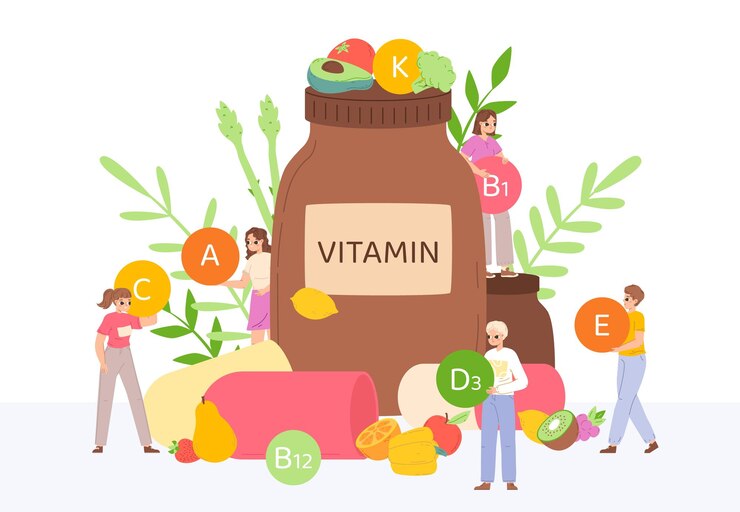
Cardiovascular/ heart disease is still the highest cause of death due to metabolic diseases. Factors that can be changed as well as unchangeable variables may contribute to the development of cardiac disease. A healthy lifestyle, including dietary habits, exercise routines, smoking habits, and alcohol consumption—factors that can be changed or modified—all contribute to an increased risk of cardiac disease by increasing blood pressure, body cholesterol, blood sugar levels, and other risk factors for diabetes and obesity.1,2 prevalence of the cardiac disease is increasing every year. The increase in cardiac disease is also influenced by the increasing incidence of metabolic diseases which are risk factors and have been mentioned previously.1
In cardiac disease, inflammation, and oxidative stress reactions produced by the body are part of the severity of cardiac disease experienced by sufferers. Cardiac disease can be reduced in severity and even prevented by a number of risk factors that, if correctly managed, can be modified. Maintaining cholesterol levels, blood sugar levels, blood pressure, and the health of the cardiac itself through behavioral changes and the use of nutritional supplements are all risk factors that can be managed.2
In some patients with metabolic diseases that can be controlled without drugs, olive extract, and lifestyle changes are the options for the management of these metabolic diseases.1,2 In addition, there are many different diet strategies that are now well known. According to the Mediterranean diet, giving olive extract plays a role in the diet plan and offers positive effects on the body's metabolism, particularly for cardiac health.1 The Mediterranean Diet is an eating plan that puts an emphasis on plant-based meals, includes seafood and uses olive extract. It has been demonstrated that the Mediterranean diet and olive oil consumption have positive effects on the body.1,3
Olive Extract on Cardiac Health
The leaves of olive plants are abundant in polyphenols, which have several health advantages. Many olive extracts are currently used in a wide range of foods and dietary supplements. According to research, the compounds in olives have cardiac-protective, antioxidant, anti-inflammatory, and anticancer properties.3,4 Oleuropein, Tyrosol, and Hydroxytyrosol, three compounds contained in olive trees, are believed to be responsible for the health effects of olives. Olive extract has been shown in numerous studies to have positive effects on cardiac health and lower the risk of coronary cardiac disease. Olive extract is now extensively used in a variety of dietary supplements, and according to studies, it also has positive effects on cholesterol metabolism, blood pressure, sugar metabolism, and body fat levels.1,3,4
The mechanism of action of the olive extract itself is still being researched, but several effects have been proven through research on glucose metabolism, this olive extract influences peripheral glucose uptake thereby reducing the buildup of blood sugar, increasing post-meal insulin secretion to be able to control blood sugar levels after eating, and stimulation of secretion of glucagon-like peptide-1 (GLP-1), which is a hormone in the body's satiety-hunger system. Olive oil has an antioxidant impact on fat metabolism, which lowers the body's overall fat storage. While HDL cholesterol and lipids weren't changed significantly, it was discovered that olive extract was helpful for lowering total cholesterol and LDL cholesterol in the metabolism of cholesterol. The good benefits obtained from olive extract on sugar and cholesterol metabolism can reduce the risk of cardiac disease.1-5
In addition to its benefits on sugar and fat metabolism, olive extract is also beneficial in reducing blood pressure and can have a significant impact on patients suffering from hypertension.2 Hypertension is still the biggest risk factor for the cardiovascular system which can have an impact on various diseases, such as cardiac disease, chronic kidney disease, and cerebrovascular disease/stroke, and still causes many deaths in sufferers. Blood pressure control, both systolic blood pressure and diastolic blood pressure, can reduce the risk of cardiac attack by 20-25% and reduce the risk of cardiac failure by as much as 50%.3 Olive extract controls blood vessel resistance, stabilizes blood flow within blood vessels, and helps to maintain blood pressure within the body. Cardiovascular advantages include lowering systolic blood pressure and controlling pulse rate. The cardiac is said to receive enough nutrients to be able to pump blood throughout the body, which also lowers the risk of cardiac attack and cardiac failure. The presence of a stable blood flow received from the olive extract is also said to have a positive impact on the health of the cardiac itself.1,2,4
Conclusion
The olive tree, or Olea europaea, is considered to have several positive effects on human health. The olive plant itself has a wealth of anti-inflammatory, anti-hypertensive, antioxidant, and cardioprotective compounds in its leaves. Oleuropein, Hydroxytyrosol, and other polyphenolic compounds are substances that are designed for and found in many of the leaves of the olive plant. Olive oil regulates blood pressure, sugar metabolism, and bodily cholesterol in order to keep cardiac health. Giving olive oil has been shown to have cardioprotective effects in addition to lowering cardiac disease risk factors.1-6
Referensi
1. Steves Y, Winkens B, Jonkers D, Masclee A. The effect of olive leaf extract on cardiovascular health markers: a randomized placebo-controlled clinical trial. Eur J Nutr. 2021; 60(4): 2111-2120
2. Razmpoosh E, Abdollahi S, Mousavirad M, Clark CCT, Soltani S. The effects of olive leaf extract on cardiovascular risk factors in the general adult population: a systematic review and meta-analysis of randomized controlled trials. Diabetology & Metabolic Syndrome. 2022; 14:151.
3. Ismail MA, Norhayati MN, Mohamad N. Olive leaf extract effect on cardiometabolic profile among adults with prehypertension and hypertension: a systematic review and meta-analysis. PeerJ. 2021; 9
4. Menezes R, Peres KK, Costa-Valle MT, Faccioli LS, Dallegrave E, Garavaglia J, et al. Oral administration of oleuropein and olive leaf extract has cardioprotective effects in rodents: A systematic review. Portuguese Society of Cardiology. 2022; 41(2): 167-175.
5.Huang C, Sumpio B. Olive oil, the Mediterranean Diet, and Cardiovascular Health. Journal of the American College of Surgeons. 2008; 207(3): 407-416.
6. Esquius L, Garcia-Retortillo S, Balague N, Hristovski R, Javierre C. Physiological- and performance-related effects of acute olive oil supplementation at moderate exercise intensiy. Journal of the International Society of Sports Nutrtion. 2019; 16:12.




